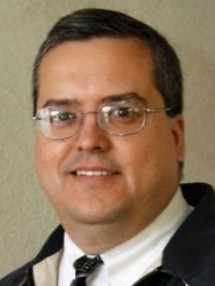 Congratulations to J. John Baer, who defended his doctoral dissertation on April 29th! His topic was "Instrumental Causality in the Philosophy of Thomas Aquinas," and his director was Professor Michael Gorman of the School of Philosophy at The Catholic University of America.
Congratulations to J. John Baer, who defended his doctoral dissertation on April 29th! His topic was "Instrumental Causality in the Philosophy of Thomas Aquinas," and his director was Professor Michael Gorman of the School of Philosophy at The Catholic University of America.
J. John Baer was born in Inglewood, CA and raised in Costa Mesa, CA. He received his B.A. in Classics from the University of California, Irvine in 1994 and his M.A. in Philosophy from The Catholic University of American in 1999. For the last twenty-four years, he has taught at Thomas Aquinas College (CA). He resides in Santa Paula, CA and has twelve children and four grandchildren.
Dissertation Abstract:
In the last 75 years, several questions have arisen concerning Aquinas’s philosophical notion of instrumental causality—as distinct from his application of this notion to theological topics such as Christ’s theandric actions and the sacraments. These questions include whether Aquinas’s understanding developed over his career and how instrumental causality relates to universal causality. A careful analysis of the works of Aquinas over the whole of his career, from the Sentences Commentary to the Tertia Pars, show the following: Aquinas’s understanding of instrumental causality is situated within his understanding of efficient causality, which is based on the principle that every cause acts from a form and in accordance with that form, a principle Aquinas finds in Aristotle. The instrumental cause acts in virtue of a form it possesses (virtus instrumenti) but also in virtue of a form that is not its own, which it receives from the principal agent (virtus instrumentalis). Thus, an instrumental cause is only an agent cause by reduction, and an effect is more properly attributed to the principal agent than to the instrument used to produce it. There is little, if any, development in Aquinas’s understanding of instrumental causality.
For example, his characterization of instrumental causality as a participation in the principal agent’s causality is consistent. Moreover, while there is a significant overlap in Aquinas’s use of instrumental and universal causality to explain certain actions, such as the generation of living things, and there are similarities between these kinds of causality—each should be understood as the cooperation of two total causes rather than the distinction between two partial causes—these two kinds of causality should not be confused. A particular cause is an agent cause in the proper sense, while an instrumental cause is only analogously so.
